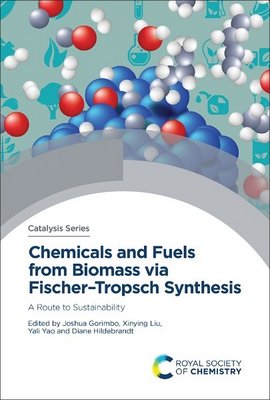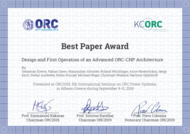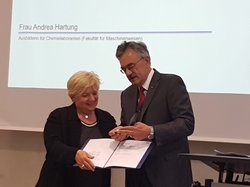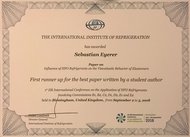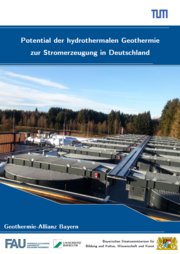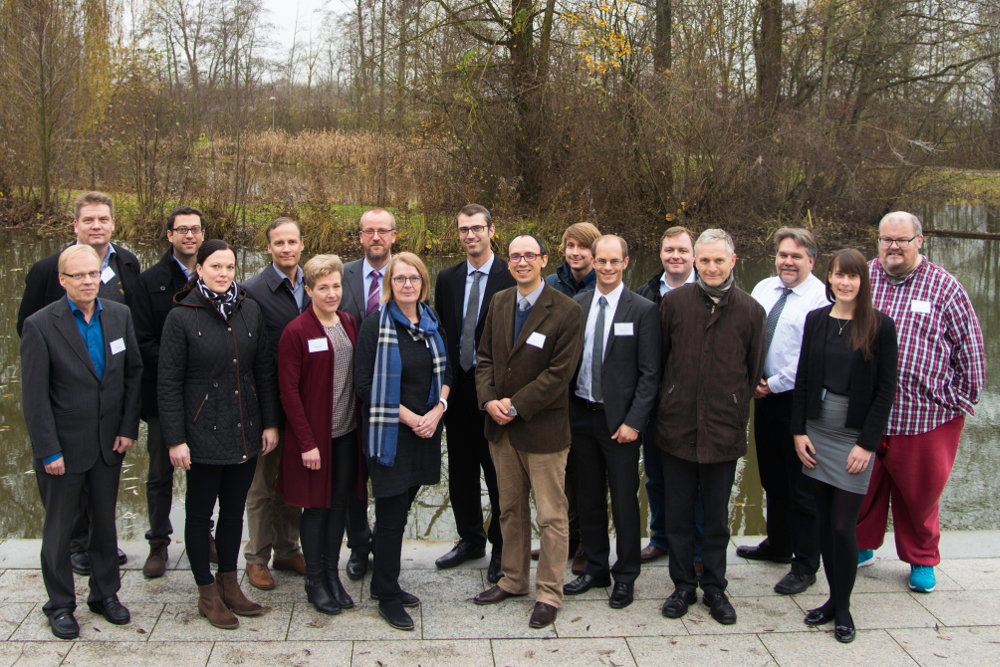Two new publications on biomass combustion in 'Fuel'

In our two latest publications in the field of biomass combustion, we investigate the release of deposition-forming substances from different biomasses and the influence of additives. The experimental data is then transferred to different biomass combustion plants. The data helps in fuel selection and in the evaluation of the use of additives. In addition, interesting potentials in grate firing systems are revealed.
https://doi.org/10.1016/j.fuel.2024.132471
https://doi.org/10.1016/j.fuel.2024.131800
Contact: Hendrik Mörtenkötter, Sebastian Fendt
New publication in the LES white paper series "Energy System in Transition" on the techno-economic evaluation of PtX and BtX processes
The Chair of Energy Systems publishes various studies on current and future challenges in the context of the energy transition as part of the "Energy System in Transition" white paper series. These studies are intended to make a scientific contribution to the discussion regarding the challenges of the energy transition.
The recently published method for techno-economic analysis (TUM CESTEA method) enables the reproducible economic analysis of Power-to-X (PtX), Biomass-to-X (BtX) and Power-and-Biomass-to-X (PBtX) processes. Based on existing methods, the resulting costs for such processes can be estimated and process options compared. The main objective is to develop a clear and systematic approach for cost estimation to ensure the quality and comparability of PtX, BtX and PBtX TEA studies.
Kontakt : Marcel Dossow, Sebastian Fendt
New publication on techno-economic analysis and comparison of Fischer-Tropsch and Methanol-to-Jet Power-to-Liquid processes to produce sustainable aviation fuels
The article of the Chair of Energy Systems published in "Energy Conversion and Management" examines the production of sustainable aviation fuels from water and CO2 from the ambient air via Fischer-Tropsch synthesis and Methanol-to-Jet using process simulations and a techno-economic comparison based on the process models. The techno-economic analysis is carried out with the TUM CESTEA (TUM Chair of Energy Systems Techno-Economic Analysis) method, which is published in the "Energy System in Transition" series by the Chair of Energy Systems (DOI: 10.14459/2024md1743206). Carbon and energy efficiencies as well as specific production costs are calculated and discussed.
DOI: 10.1016/j.enconman.2024.118728
Kontakt : Vincent Eyberg, Sebastian Fendt
Sustainability Day at the Technical University of Munich

In mid-June, we had the honor of participating in the Sustainability Day at the Technical University of Munich (TUM). Our Chair of Energy Systems was proud to be represented with its own stand.
At our stand, we presented an innovative miniature energy system with an integrated power plant, which attracted great interest. This power plant was simulated by two bicycles that can be coupled together and feed their produced energy into the system. Our exhibition offered exciting insights into forward-looking technologies and their applications in the field of sustainable energy supply.
We would like to sincerely thank all visitors and organizers for this inspiring day.
Pictures:
- Sebastian Kissel
- Astrid Eckert
- George P. Thomas
Sustainable aviation fuel from biomass via gasification and Fischer-Tropsch synthesis - new book chapter now available
Global aviation growth is set to continue in the coming decades, and the most promising strategy for reducing greenhouse gas emissions from aviation is the use of sustainable aviation fuel (SAF).
The so-called biomass-to-liquid (BtL) process is considered the most promising of several process pathways for producing SAF. In this process, syngas is converted into long-chain hydrocarbons by Fischer-Tropsch synthesis (FTS). SAF produced by FTS is considered a drop-in fuel, which means that existing aircraft can run on SAF without technical modifications. In addition, the use of sustainable biomass residues shows a high potential for emission reduction.
In the newly published book chapter "Sustainable Aviation Fuel from Biomass via Gasification and Fischer-Tropsch Synthesis" from "Chemicals and Fuels from Biomass via Fischer-Tropsch Synthesis: A Route to Sustainability", the specific BtL-FT route to produce SAF is described. This consists of torrefaction of lignocellulosic biomass residues, oxygen-blown entrained flow gasification, gas processing, and FTS, and yields liquid hydrocarbon fuels with high selectivity for SAF for further upgrading. Modeling of different pathway configurations-including integration of materials and heat and variation of process parameters-shows the potential of the BtL-FT pathway to produce SAF efficiently in both the short and medium term.
GOLD project: TUM Horizon 2020 delegation visits Canadian partners and technical meeting in France
Within the framework of the EU Horizon 2020 project GOLD on phytoremediation of contaminated soils and sustainable biofuel production (https://www.gold-h2020.eu/the-project), partners of the Chair of Energy Systems at TU München (https://www.epe.ed.tum.de/en/es/research/projects/gold) visited the Canadian project partners of the Université de Sherbrooke in Quebec (https://www.usherbrooke.ca/genie-chimique-biotech/departement/professeurs/nicolas-abatzoglou, https://www.usherbrooke.ca/genie-chimique-biotech/departement/professeurs/ines-esma-achouri). In addition to the project-specific exchange on research questions of fuel production from contaminated biomasses, the meeting focused on the exchange of content on future research topics and the intensification of international cooperation, especially between Europe and Canada.
After a fruitful first year in the GOLD project, with successful pot trials and sowing of the energy crops selected in the project, a first technical meeting in person took place in Lille, France, at the invitation of the project partner JUNIA. In addition to the status updates of the individual GOLD partners on the optimization of selected high-yielding crops for phytoremediation purposes and the conversion processes to clean biofuels with low ILUC risks, the upcoming activities to optimize the value chain bridging the gap between phytoremediation and biofuels were also the topic of the meeting.
The highlight of the meeting was the visit to the former MetalEurope Nord smelting site in Pas-de-Calais, which after its closure had been one of the most polluted sites in Europe. As one of five sites in the EU and seven worldwide (https://www.gold-h2020.eu/pilot-sites), the use of energy crops to phytoremediate these contaminated soils is being studied there as part of the GOLD project.
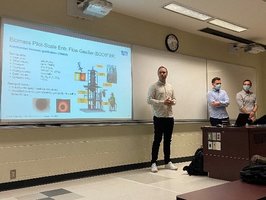
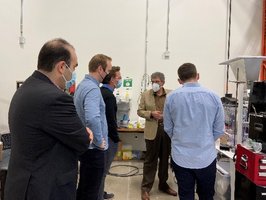


Website of the EU research project GOLD now online
The website of the EU project GOLD (Growing energy crops on contaminated land for biofuels and soil remediation) is now officially available (link). The Chair of Energy Systems is pleased to be part of the EU research project and to contribute together with the international partners to the realization of the Sustainable Development Goals and the objectives of the EU Green Deal. Further information about the participation of the LES can be found here.
Contact: Marcel Dossow, Sebastian Fendt
This project is funded by the European Union's Horizon 2020 research and innovation program under grant number 101006873.

Two researchers of ES awarded with the „Christian-Hecht-Preis 2021“
The chair of Energy Systems congratulates his employee Matthäus Irl and his former employee Dr.-Ing. Sebastian Eyerer for winning the Christian Hecht Preis 2021. Both junior scientists have been honored for their contributions to the geothermal energy utilization in the Bavarian Molasse Basin and the Upper Rhine Graben at the Praxisforum Geothermie.Bayern 2021. The jury of representatives from industry and academia decided for two awardees as both achieved the same number of points. Mr. Eyerer investigated various working fluids and an efficient and flexible concept for an Organic Rankine Cycle for geothermal CHP plants in his PhD. Mr. Irl works on the analysis and optimization of the operation of deep-geothermal CHP plants. Dr. Dietfried Bruss of the Stadtwerke München mentioned in the laudation that both awardees have quite some things in common. Amongst others, both works are part of the Geothermal-Alliance Bavaria, which proves the high scientific rank and the relevance of this research alliance.
Double success for the LES at this year's MSE Energy Colloquium
The Chair of Energy Systems congratulates its staff members Felix Fischer and Marcel Dossow for receiving the Best Presentation, respectively the Best Paper Award of the 11th MSE Energy Colloquium. Mr Fischer presented the successful progress of the BioCORE project in the field of highly efficient biogas utilization in high temperature fuel cells to a broad public for the first time. Mr Dossow summarised the results of his extensive simulations on the production of Sustainable Aviation Fuels (SAF) on his poster.
The BioCORE project is funded by the German Federal Ministry of Education and Research and will run until 30.11.2021. The poster is available for download. An introductory video to the poster is available here.
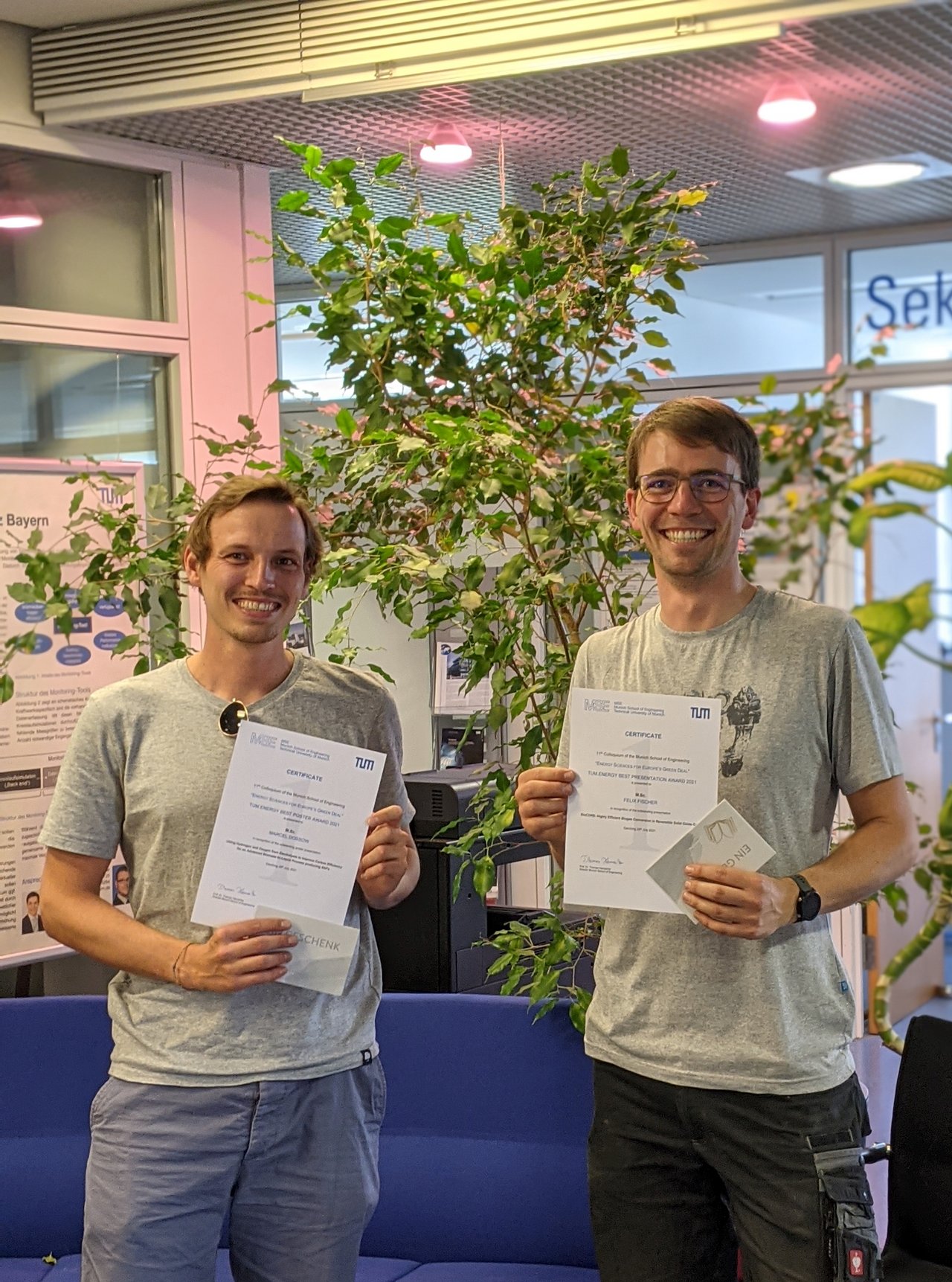
Website for EU research project TWIN-PEAKS now online
The website of the EU project TWIN-PEAKS (Twinning for Promoting Excellence, Ability and Knowledge to Developed Advanced Waste Gasification Solutions) is now officially available (Link). The Chair of Energy Systems is pleased to be part of the EU research project and to work together with the Lithuanian, Swedish and German partners on waste and residue gasification technologies of the future. As part of the research project, three core research areas were identified on which the joint research of the consortium is now focused: plasma-assisted gasification processes, plasma-assisted methanation and the topic of input materials and usage paths for gasification process chains.
Contacts: Sebastian Bastek, Sebastian Fendt
This project has received funding from the European Union’s Horizon 2020 research and innovation programme under grant agreement No 951308. The sole responsibility for the content of this presentation lies with the authors. It does not necessarily reflect the opinion of the European Union. Neither the REA nor the European Commission are responsible for any use that may be made of the information contained therein.
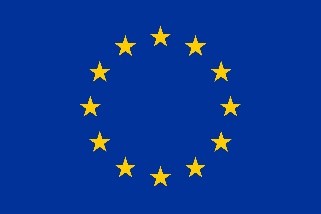
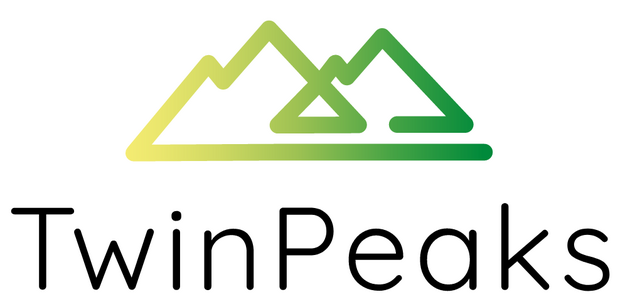
EU research project ENGIMONNIA kicks-off at 1st of May 2021
The chair of Energy Systems is looking forward to be part of the EU research project ENGIMONNIA. A total of 22 partners from industry and research with a total funding of 9.5 Mio. € are investigating the decarbonization of the maritime sector with Ammonia as a future energy vector. Together with ORCAN ENERGY AG, the chair of Energy Systems is working on increased engine efficiency by means of waste heat utilization in ORC systems. Further information on the project and the consortium can be found here. The Project begins at 1st of May 2021 and has a project duration of 4 years.
Contact person: Christoph Wieland

Geothermal-Alliance Bavaria 2.0 granted!
Geothermal-Alliance Bavaria 2.0 granted!
The chair of Energy Systems is looking forward to be part of the consecutive phase of the Geothermal Alliance Bavaria (GAB). TUM is coordinating this collaborative research association of TUM, Friedrich-Alexander-Universität Erlangen-Nürnberg, University of Bayreuth, Ludwig-Maximilians-Universität München and University of Applied Sciences München. The chair of Energy Systems is researching on the efficient use of geothermal heat. The project duration of this second phase is from 2021 to 2024. The project, which is funded by the Bavarian State Ministry of Science and the Arts (StMWK), has the objective of fostering the local use of geothermal energy and targeting to meet future CO2-emissions goals. The press release of the StMWK with further details to the project are found here (German only).
Contact person: Christoph Wieland
TUM commissions large-scale heat source on the Campus Garching
TUM has successfully realized and commissioned an additional building block for their “Living Lab” on the Campus Garching. Tapping the district heating system of the university, which is powered by the university-owned power plant, heat can be extracted at temperatures of up to 150°C and with a maximum power of up to 2.5 MWth. The hot water heat can be used to test innovative technologies on site.
Together with the team of the technical operation and the chair of Energy Systems, the Clean Tech company Orcan Energy AG has successfully tested one of their efficiency PACKs based on Organic Rankine Cycle (ORC) technology with a power output of 200 kWel Organic Rankine Cycle (ORC). With this approach it has been possible to test innovative solutions and to pre-qualify them for series production. The TUM appreciates the trust and is very pleased about the successful collaboration of the three parties.
Beyond ORC technology the heat source could also be used for experimental investigations of absorption-based technologies and heat pumps.
Contact person: Dr.-Ing. Christoph Wieland; Fabian Dawo, M.Sc.
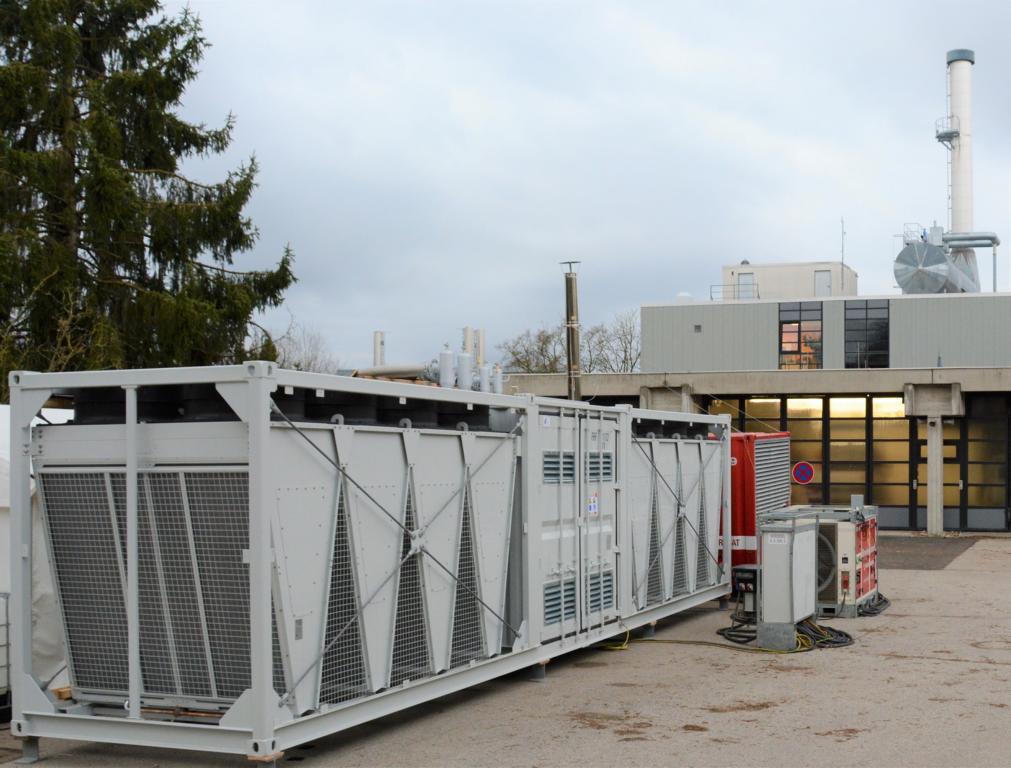
6th International Seminar on ORC Power Systems 2021 at TUM
The Chair of Energy Systems of the Technical University of Munich was selected by the chair of the KCORC (Knowledge Center Organic Rankine Cycle) to host the world largest ORC conference in 2021. We are highly honored, since this is also proof of the quality of our research and of Munich as a science and engineering hub. We are happy to welcome the ORC Community and to follow-up on the success-stories of the previous editions.
Best Paper Award 5th International Seminar on ORC Power Systems
The chair for Energy Systems congratulates his employee Sebastian Eyerer and his co-authors on the best paper award of 5th International Seminar on ORC Power Systems (ORC 2019) for their contribution "Design and First Operation of an Advanced ORC-CHP Architecture". The award has been selected in addition to last year’s conference. The chair for Energy Systems thanks the organizers and the Knowledge Center Organic Rankine Cycle (KCORC) for this award. The works and the results have been part of the Geothermal-Alliance Bavaria funded by the Bayerische Staatsministerium für Bildung und Kultus, Wissenschaft und Kunst. The publication can be downloaded here.
TUM-GIF Workshop at UC Davis
From 15 - 17 October 2018 a workshop financed by the Global Incentive Fund (TUM-GIF) took place at the University of California in Davis (UCD). The aims of the workshop were to deepen the technical cooperation between TUM, UC Davis and UC San Diego, as well as the joint writing of project proposals. The cooperation will also be continued at the level of student exchange.
Contact: Sebastian Fendt, Felix Fischer
Gemeinsame Vortragsreihe Lehrstuhl für Energiesysteme und VDI-AK Energietechnik
Im WS 2018/19 findet wieder eine gemeinsame Vortragsreihe des Lehrstuhls für Energiesysteme zusammen mit dem VDI AK Energietechnik statt, diesmal unter dem Thema
„Die Säulen der zukünftigen Energieversorgung“.
Die Vortragsthemen sind dem angehängten Programm zu entnehmen. Dieses Jahr finden die Vorträge im IAS Gebäude am TUM-Campus Garching statt und starten jeweils um 17:00 Uhr. Im Anschluss an die Vorträge besteht für alle Zuhörer die Möglichkeit sich in der Campus-Cneipe über die Vortragsthemen und aktuelle Themen der Energietechnik auszutauschen. Programm.
August Föppl Medaille an Andrea Hartung überreicht
Der Lehrstuhl für Energiesysteme gratuliert seiner Mitarbeiterin Andrea Hartung zur Auszeichnung mit der August Föppl Medaille. Mit der August Föppl-Medaille ehrt die Technische Universität München (TUM) seit 2002 jährlich Mitarbeiterinnen und Mitarbeiter, die sich besonders für die berufliche Ausbildung einsetzen. Sie ist benannt nach dem langjährigen Professor für Technische Mechanik und Grafische Statik, August Föppl (1854-1924). Als Leiterin des Chemielabors bildet Frau Hartung am LES ChemielaborantInnen aus und hat hierbei in den letzten Jahren exzellente Arbeit geleistet.
Best Paper Award HFO2018-Konferenz
Der Lehrstuhl für Energiesysteme gratuliert seinem Mitarbeiter Sebastian Eyerer und seinen Co-Autoren zur Auszeichnung mit dem zweiten Preis beim Best Student Paper Award der 1st IIR International Conference on the Application of HFO Refrigerants 2018 (HPC2018) für ihren Beitrag "Influence of HFO Refrigerants on the Viscoelastic Behavior of Elastomers". Die Auszeichnung wurde ihm auf der diesjährigen Konferenz überreicht. Die Untersuchungen entstanden im Rahmen der Geothermie-Allianz Bayern gefördert durch das Bayerische Staatsministerium für Bildung und Kultus, Wissenschaft und Kunst.
Auszeichnungen für Konzerenzbeiträge
Der Lehrstuhl für Energiesysteme gratuliert zwei Mitarbeitern zu ihren Auszeichnungen für wissenschaftlichen Beiträge auf Konferenzen:
- Sebastian Miehling erhielt auf der 9th International Freiberg Conference on IGCC & XtL Technologies für seinen Beitrag "Potential of Flexible Polygeneration Plants in Germany based on Energy System Simulations" den Award for Outstanding Poster – 1st Place. Die Auszeichnung wurde ihm am 5. Juni 2018 überreicht.
- Peter Ostermeier wurde auf der Clearwater Clean Energy Conference für seinen Beitrag “Numerical Approaches for Modeling Gas-Solid Fluidized Bed Reaktors: Comparision of Models and Application to Different Technical Problems” mit dem Best Student Paper Award (First Runner Up) geehrt. Die Auszeichnung wurde ihm am 7. Juni 2018 überreicht.
Mitarbeiterin des LES mit dem Boie-Preis ausgezeichnet
Der Lehrstuhl für Energiesysteme gratuliert seiner Mitarbeiterin Julia Hentschel zur Auszeichnung mit dem Boie-Preis des 49. Kraftwerkstechnischen Kolloquiums 2017 für ihren Vorjahres-Beitrag “Angepasste Sekundärregelcharakteristik durch dynamische Kraftwerkssimulation unter Berücksichtigung des Zeitverhaltens von Steinkohlemühlen”. Die Auszeichnung wurde am 17. Oktober 2017 auf der diesjährigen Konferenz von Prof. Dr.-Ing. H. Spliethoff stellvertretend entgegengenommen. Der Beitrag entstand im Rahmen des Forschungsprojektes Energy Valley Bavaria in Kooperation mit dem Energieversorger Uniper Technologies GmbH und wurde durch eine Förderung des Freistaats Bayern unterstützt.
Potential der hydrothermalen Geothermie zur Stromerzeugung in Deutschland
Der Energiemarkt in Deutschland steht spätestens seit dem Einleiten der Energiewende vor großen Veränderungen. Die Bundesregierung strebt einen deutlichen Anstieg erneuerbarer Energieerzeugung an. Im Gegensatz zu der volatilen Stromerzeugung von PV und Windkraft, steht mit der Geothermie eine potentiell verlässliche und regelbare Energiequelle zur Verfügung. Der mögliche Beitrag der hydrothermalen Geothermie wurde daher in einer Studie im Rahmen der Geothermie-Allianz Bayern untersucht. Ausgehend vom theoretischen Potential der hydrothermalen Wärmemenge im Untergrund wird mit Hilfe einer Analyse der Bestandskraftwerke das technische und das wirtschaftliche Potential der Technologie ermittelt.
Die Studie steht zum Download bereit
Towards the next generation bioenergy concepts
On November 24th the official start of the Horizon 2020 project Biofficiency took place at the Technical University of Munich. The Biofficiency project shall pave the way to utilize low-grade biomasses for power and heat generation. In the next three years, the 11 partners from Germany, Finland, Denmark, Belgium, Greece and the Netherlands will work towards developing the next generation of highly efficient, biomass-fired Combined Heat and Power (CHP) plants.
Heating and cooling are responsible for almost half of EU’s final energy demand. Replacing fossil fuels in e.g. heating, with sustainable biomass, is seen as a way to cut Europe’s dependence on fossil fuels and to cut greenhouse gas emissions. It has been predicted that the role of bioenergy in the heat market in Europe could be increased from 11% in 2007 to about 25% by 2020. Combined Heat and Power (CHP) from biomass is one of the most efficient ways to reach this increase. The main challenge for achieving a broader use of biomass as fuel in CHP generation are ash-related problems. Corrosion of boiler materials, due to the difficult ash composition of biomass, limits significantly the use of biomasses in high-efficiency CHP plants.
The project will take a holistic approach to address these problems: Topics ranging from widening of biomass-feedstock through pre-treatment, utilization of different firing technologies in lab-, pilot- and full-scale development of future ash utilization possibilities to overall plant design will be investigated. “I feel confident that Biofficiency will have a big impact on future biomass use in power and heat generation.“ says Prof. Spliethoff, coordinator of the project and Head of the Chair of Energy Systems at Technical University of Munich.
The Biofficiency project gathers a unique consortium of excellent academic facilities and industrial partners, providing an exceptional platform for successful execution of the project. By sharing collective experience, the partners aim to strengthen European bioenergy technologies and help solving global climate and energy challenges.
Project partners are: Abo Akademi, DONG Energy, Energy research Centre of the Netherlands, Laborelec, Metsä Fibre, Mitsubishi Hitachi Power Systems Europe, National Technical University of Athens, Technical University of Denmark, Technical University of Munich, Valmet and VTT Technical Research Centre of Finland.
